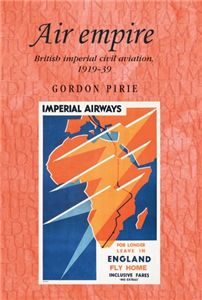Your Search Results
-
Longleaf Rights Management
Representing rights for Duke University Press, Syracuse University Press, University of Georgia Press,University of Nebraska Press,University of New Mexico Press, University of North Carolina Press, Vanderbilt University Press and University of West Indies Press
View Rights Portal
-
Promoted ContentHumanities & Social SciencesNovember 2023
Critical theory and human rights
From compassion to coercion
by David McGrogan
This book describes how human rights have given rise to a vision of benevolent governance that, if fully realised, would be antithetical to individual freedom. It describes human rights' evolution into a grand but nebulous project, rooted in compassion, with the overarching aim of improving universal welfare by defining the conditions of human well-being and imposing obligations on the state and other actors to realise them. This gives rise to a form of managerialism, preoccupied with measuring and improving the 'human rights performance' of the state, businesses and so on. The ultimate result is the 'governmentalisation' of a pastoral form of global human rights governance, in which power is exercised for the general good, moulded by a complex regulatory sphere which shapes the field of action for the individual at every turn. This, unsurprisingly, does not appeal to rights-holders themselves.
-
Promoted ContentHumanities & Social SciencesApril 2021
Critical theory and human rights
by David McGrogan, Darrow Schecter
-
 Trusted Partner
Humanities & Social SciencesMarch 2019
Trusted Partner
Humanities & Social SciencesMarch 2019Managing diabetes, managing medicine
Chronic disease and clinical bureaucracy in post-war Britain
by Martin D. Moore, Keir Waddington, David Cantor
This book is available as an open access ebook under a CC-BY-NC-ND licence. Through its study of diabetes care in twentieth-century Britain, Managing diabetes, managing medicine offers the first historical monograph to explore how the decision-making and labour of medical professionals became subject to bureaucratic regulation and managerial oversight. Where much existing literature has cast health care management as either a political imposition or an assertion of medical control, this work positions managerial medicine as a co-constructed venture. Although driven by different motives, doctors, nurses, professional bodies, government agencies and international organisations were all integral to the creation of managerial systems, working within a context of considerable professional, political, technological, economic and cultural change.
-
 Trusted Partner
Humanities & Social SciencesFebruary 2017
Trusted Partner
Humanities & Social SciencesFebruary 2017Oceania under steam
Sea transport and the cultures of colonialism, c. 1870–1914
by Frances Steel
The age of steam was the age of Britain's global maritime dominance, the age of enormous ocean liners and human mastery over the seas. The world seemed to shrink as timetabled shipping mapped out faster, more efficient and more reliable transoceanic networks. But what did this transport revolution look like at the other end of the line, at the edge of empire in the South Pacific? Through the historical example of the largest and most important regional maritime enterprise - the Union Steam Ship Company of New Zealand - Frances Steel eloquently charts the diverse and often conflicting interests, itineraries and experiences of commercial and political elites, common seamen and stewardesses, and Islander dock workers and passengers. Drawing on a variety of sources, including shipping company archives, imperial conference proceedings, diaries, newspapers and photographs, this book will appeal to cultural historians and geographers of British imperialism, scholars of transport and mobility studies, and historians of New Zealand and the Pacific.
-
 Trusted Partner
Humanities & Social SciencesAugust 1995
Trusted Partner
Humanities & Social SciencesAugust 1995British Business History, 1720–1994
by J. F. Wilson
This textbook covers over three centuries of British business history from 1720 to the present day. Wilson argues that company culture has been the most important component in the evolution of business organisations and management practices. The influence of business culture on firms' structure, sources of finance, and the background and training of senior managers are investigated to show its pivotal importance in determining business performance. The book also examines how British business adapted to changing economic, institutional and socio-cultural environments yet failed to develop the kind of managerial hierarchies typified by American and German corporations. Wilson uses an extensive number of case studies to support his conclusions. The book covers the subject chronologically with an extra chapter comparing Britain's experience with the USA, Germany and Japan. ;
-
 Trusted Partner
Humanities & Social SciencesNovember 2009
Trusted Partner
Humanities & Social SciencesNovember 2009Air empire
British imperial civil aviation, 1919–39
by Gordon Pirie, Andrew Thompson, John Mackenzie
Air empire is a fresh study of civil aviation as a tool of late British imperialism. The first pioneering flights across the British empire in 1919-20 were flag-waving adventures that recreated an era of plucky British maritime exploration and conquest. Britain's development of international air routes and services was approved, organised and celebrated largely in London; there was some resistance in and beyond the subordinate colonies and dominions. Negotiating the financing and geopolitics of regular commercial air service delayed its inception until the 1930s. Technological, managerial and logistical problems also meant that Britain was slow into the air and slow in the air. Propaganda concealed underperformance and criticism. The study uses archival sources, biographies, industry magazines and newspapers to chronicle the disputed progress toward air empire. The rhetoric behind imperial air service offers a glimpse of late imperial hopes, fears, attitudes and style. Empire air service had emotional appeal and symbolic value, but disappointed in practice. ;
-
 Trusted Partner
Humanities & Social SciencesMarch 2017
Trusted Partner
Humanities & Social SciencesMarch 2017Air empire
British imperial civil aviation, 1919–39
by Gordon Pirie, Andrew Thompson, John M. MacKenzie
Air empire is a fresh study of civil aviation as a tool of late British imperialism. The first pioneering flights across the British empire in 1919-20 were flag-waving adventures that recreated an era of plucky British maritime exploration and conquest. Britain's development of international air routes and services was approved, organised and celebrated largely in London; there was some resistance in and beyond the subordinate colonies and dominions. Negotiating the financing and geopolitics of regular commercial air service delayed its inception until the 1930s. Technological, managerial and logistical problems also meant that Britain was slow into the air and slow in the air. Propaganda concealed underperformance and criticism. The study uses archival sources, biographies, industry magazines and newspapers to chronicle the disputed progress toward air empire. The rhetoric behind imperial air service offers a glimpse of late imperial hopes, fears, attitudes and style. Empire air service had emotional appeal and symbolic value, but disappointed in practice.












